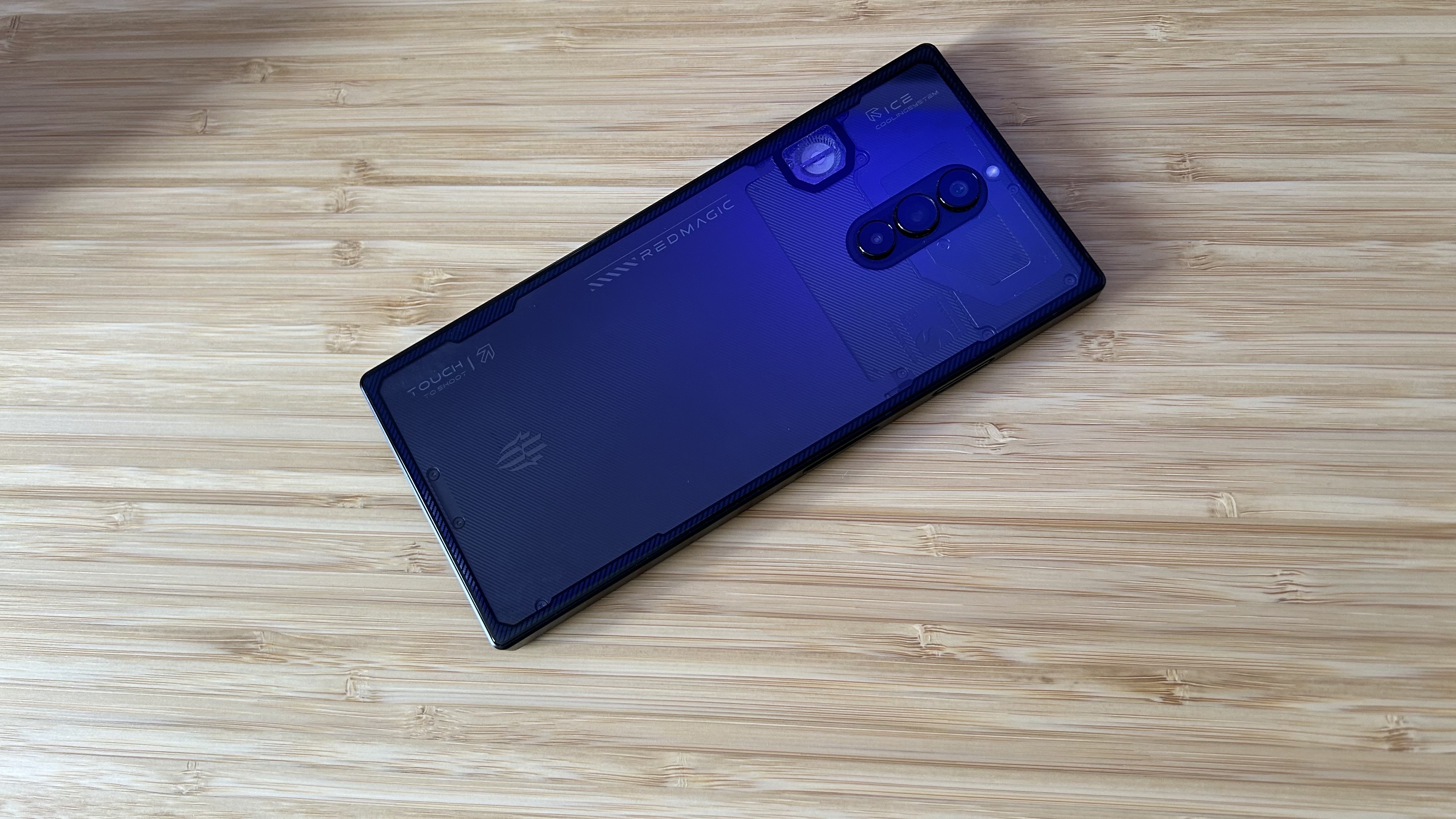GamesRadar+ Verdict
The RedMagic 8S Pro offers fantastic value for money overall, capable of running anything you can throw at it without breaking the bank. It takes a little setting up to get there, but once you're past Nubia's software struggles this is a solid experience.
Pros
- +
Excellent value for money
- +
Slick aesthetic
- +
Crisp display
- +
Long battery life
Cons
- -
Very similar to older 8 Pro
- -
Awful selfie camera
- -
Newer models available
- -
A lot of setup required
Why you can trust GamesRadar+
Nubia keeps a breakneck refresh cycle for its RedMagic series of gaming phones, updating its selection with a new model to accommodate the rapidly changing array of components available. The latest RedMagic 8S Pro is more of an iterative upgrade, however. Released before the Snapdragon 8 Gen 3 chip came to market, the flat-edged device overclocks the same Gen 2 chip that powered its previous 8 Pro model, and does so in a similarly specced device overall.
That also means you're still getting one of the best gaming phones from a sheer value perspective here, though, with that base price coming in at just $649 / £579. That cooling system has seen an upgrade, and there are more RAM / storage options on the table. I've spent the last two weeks exclusively using the boosted $799 / £709 configuration to see just how far it can take you.
| Specs | As Tested | Also Available |
|---|---|---|
| Display | 6.8-inch AMOLED 1116 x 2480 at 120Hz | - |
| Processor | Snapdragon 8 Gen 2 | - |
| RAM | 16GB | 8GB | 12GB |
| Storage | 512GB | 128GB | 256GB |
| OS | Android 13 | - |
| Cameras | 50MP wide, 8MP ultrawide, 2MP macro, 16MP front | - |
| Battery | 6,000 mAh | - |
| Water resistance | NA | - |
| Dimensions | 16.4 x 7.6 x 0.9cm | - |
| Weight | 228g | - |
Design
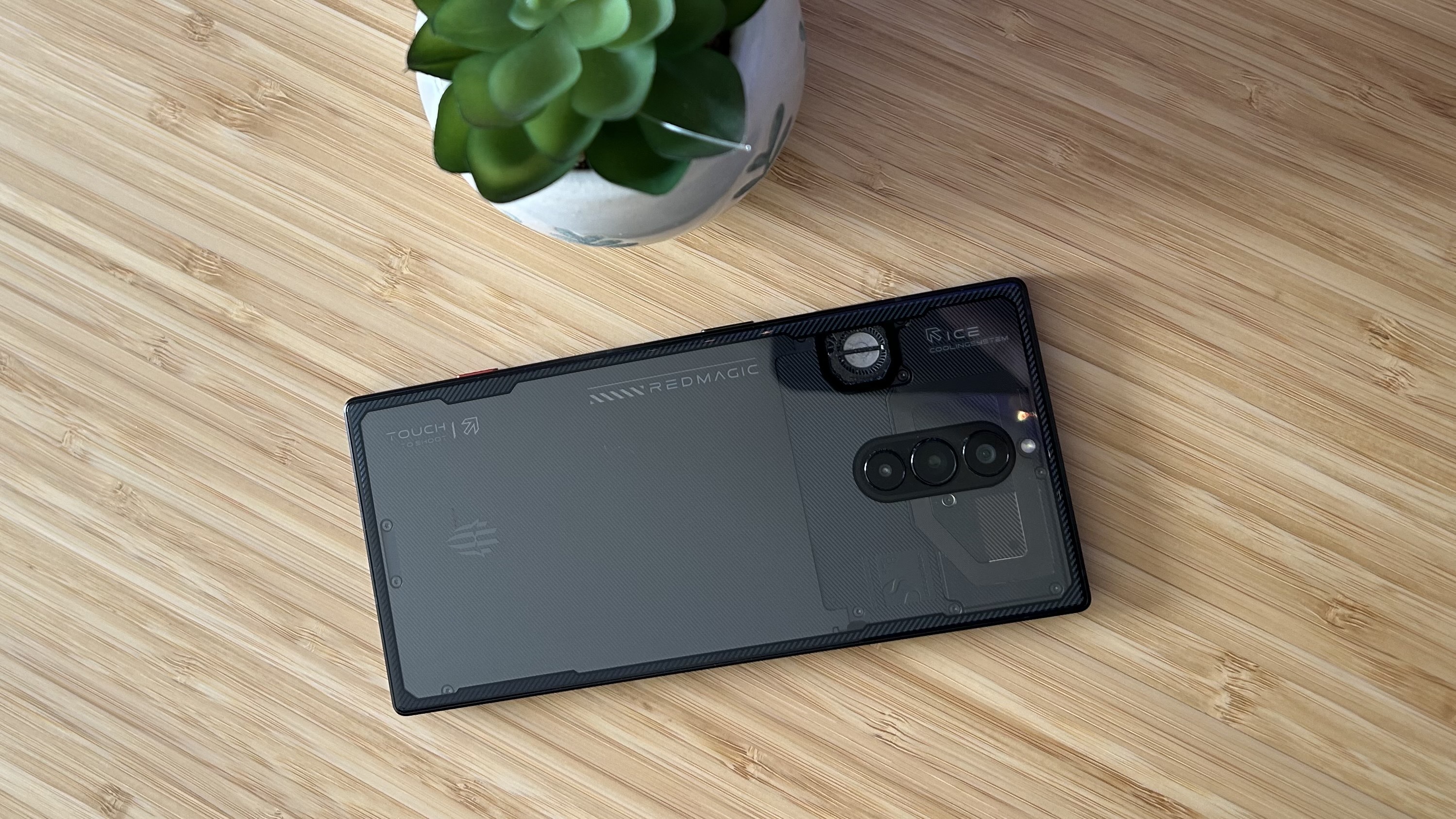
The new model carries the same aesthetics as the RedMagic 8 Pro launched earlier last year, though the boosted model I received swaps a matte black cover for a Gorilla Glass panel across the rear. We've still got the sophisticated flat form factor that took over from the more gamified designs of the 7 Pro and other models before it, with a skinny bezel front that feels particularly slick in the hand.
The flat sides and only slightly rounded corners do take their toll during longer play sessions, putting pressure on two very small points on the palms. The larger corners achieved by the included bumper case do alleviate this, but you are going to find more comfort in a device with more rounded edges and a slightly curved back - even if this design is becoming outdated now.
Overall, I do prefer the square form factor here. Like the 8 Pro before it, the RedMagic 8S Pro feels and looks a lot more like a high-end flagship smartphone in these clothes. Gaming phones are growing up, moving away from the harsh lines and over the top iconography of their predecessors - and RedMagic devices are certainly riding that wave.
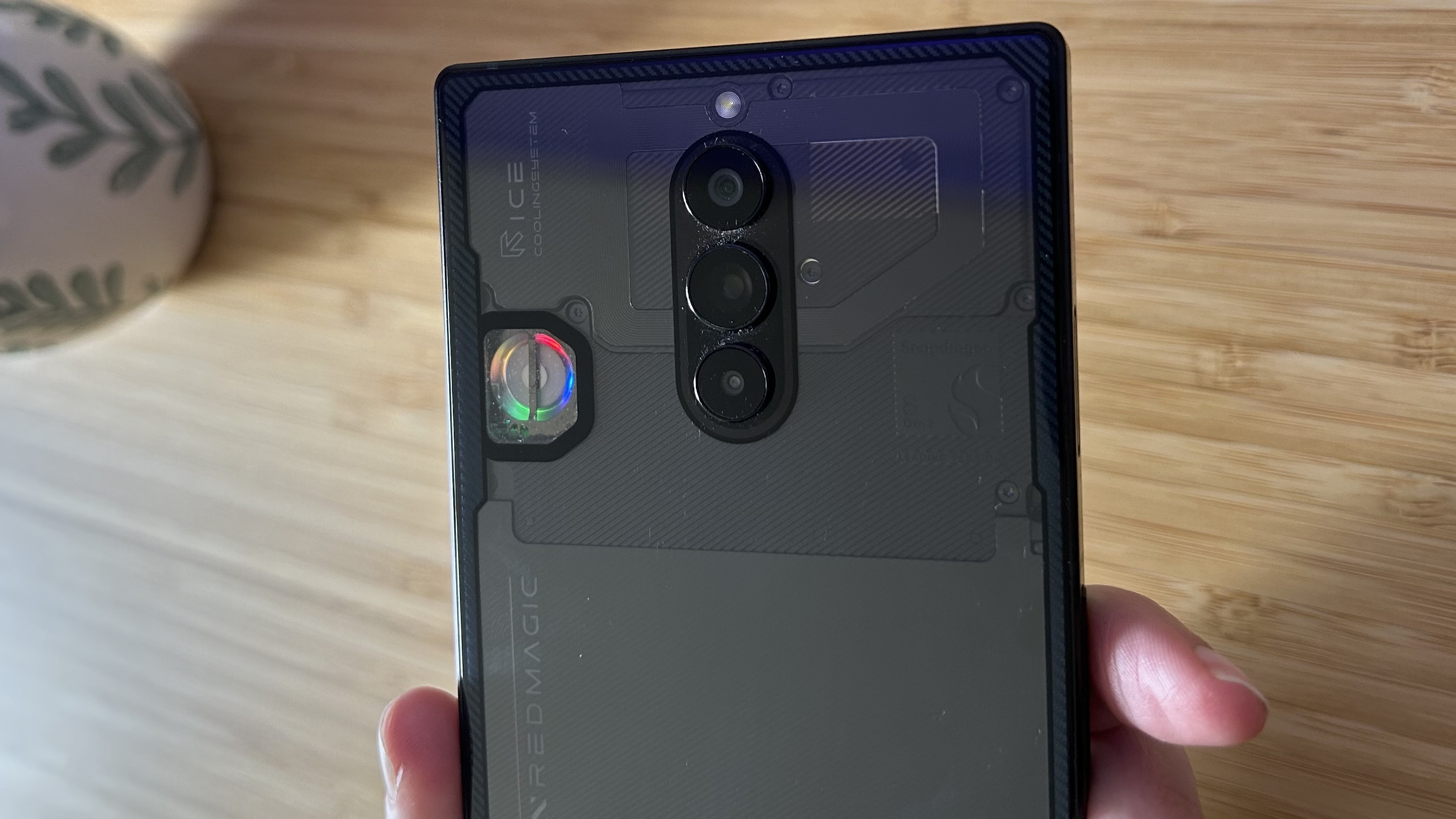
There is a little glimmer of gaming, though. A small transparent window shows off the RGB cooling fan around the back, a design feature that has endured since the 7 Pro model and still looks great when it kicks in. That's in combination with the bright red toggle switch on the right hand side, which launches the RedMagic 8S Pro's dedicated game launcher hub.
A 3.5mm audio jack is most welcome along the top of the device, positioned to comfortable accommodate both a portrait and landscape hold. We've been spoilt by the Asus ROG Phone series, though. You'll find two USB-C ports on Asus's devices, so that the charging wire never interrupts your gameplay session. Here, we've got the standard single port in the center of the bottom.
Features
RedMagic has always had one thorn in its side. Its software has traditionally let it down with buggy interfaces and strange translation blips appearing across the experience. The RedMagic 8S Pro greatly improved this area, though things aren't exactly peachy. There are still some bizarre UI choices in here, with a pretty rough default browser, a selection of random bloatware apps pre-installed, and the RedMagic watermark automatically being added to all photographs. Of course, you can change all of this during setup, but the process remains clunky and I was still finding niggling bugs and settings to adjust after two weeks of constant use.
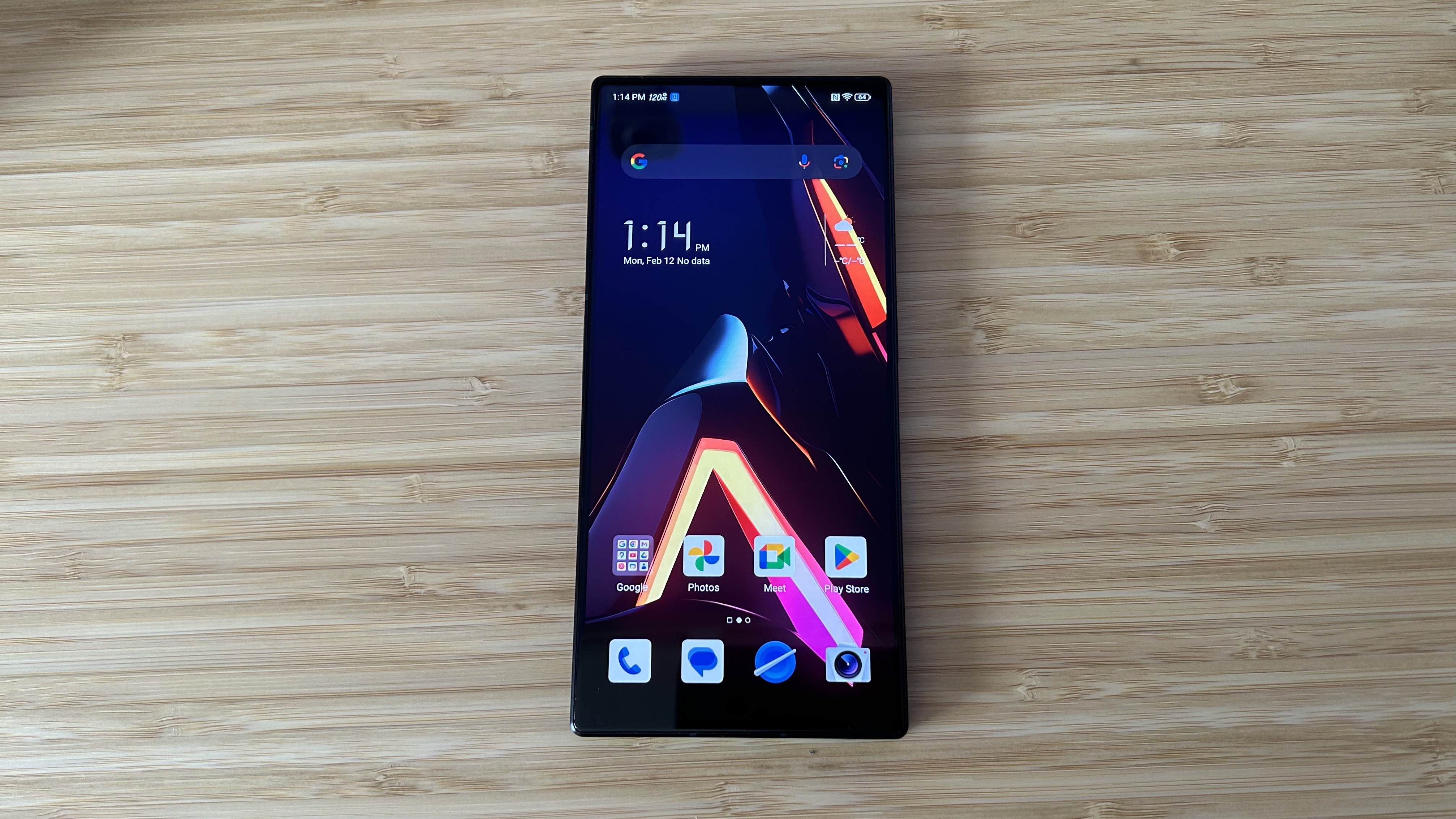
Once you've put the work in to set up, though, that screen comes into play. Nubia has upgraded the resolution on this panel for the 8S Pro, offering a super crisp AMOLED display that reaches a max 1,300 nit brightness. I had to manually scale this up during everyday use as the auto-brightness was always a little too dark to see in particularly bright environments. Even then, a sunny day posed problems for the screen when viewing details on photographs - I often had to wait until I was inside to check them out fully. You're also getting the industry standard 120Hz refresh rate in here, though that's not quite as fast as Asus's 165Hz.
For the cash, this is a fantastic screen but the memory and storage specs you get are on another level. You'd be hard pressed to find a 16GB RAM / 512GB storage device for under $800 from other brands, but the RedMagic 8S Pro manages to pack those components with ease. That's including the numerous additional gaming features.
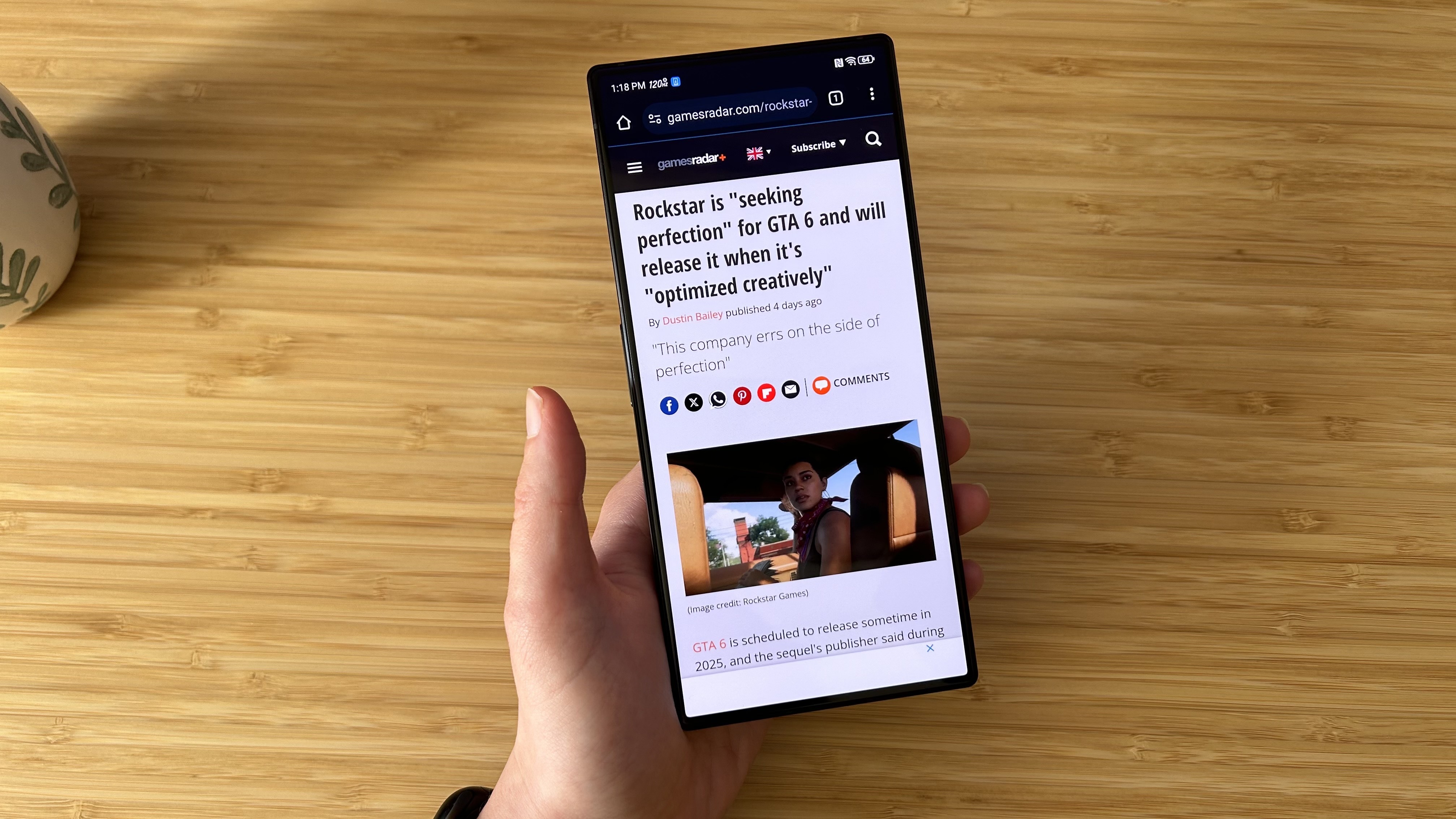
Two capacitive trigger pads remain along the right edge of the phone, capable to tracking at 560Hz for integration with compatible shooter games. The built in game launcher launches fast, and allows for quick and easy settings adjustments while booting the phone into a high-powered performance mode that cranks up the cooling. In-game you'll also have access to additional power tweaks, as well as various recording functions.
The 6,000mAh battery still holds the lead compared to higher powered options from Asus (the ROG Phone 8 Pro packs a 5,500mAh charge). It also helps that the included fast-charger can juice you up in around 45 minutes. As with many other gaming phones, there's no wireless charging here.
Camera


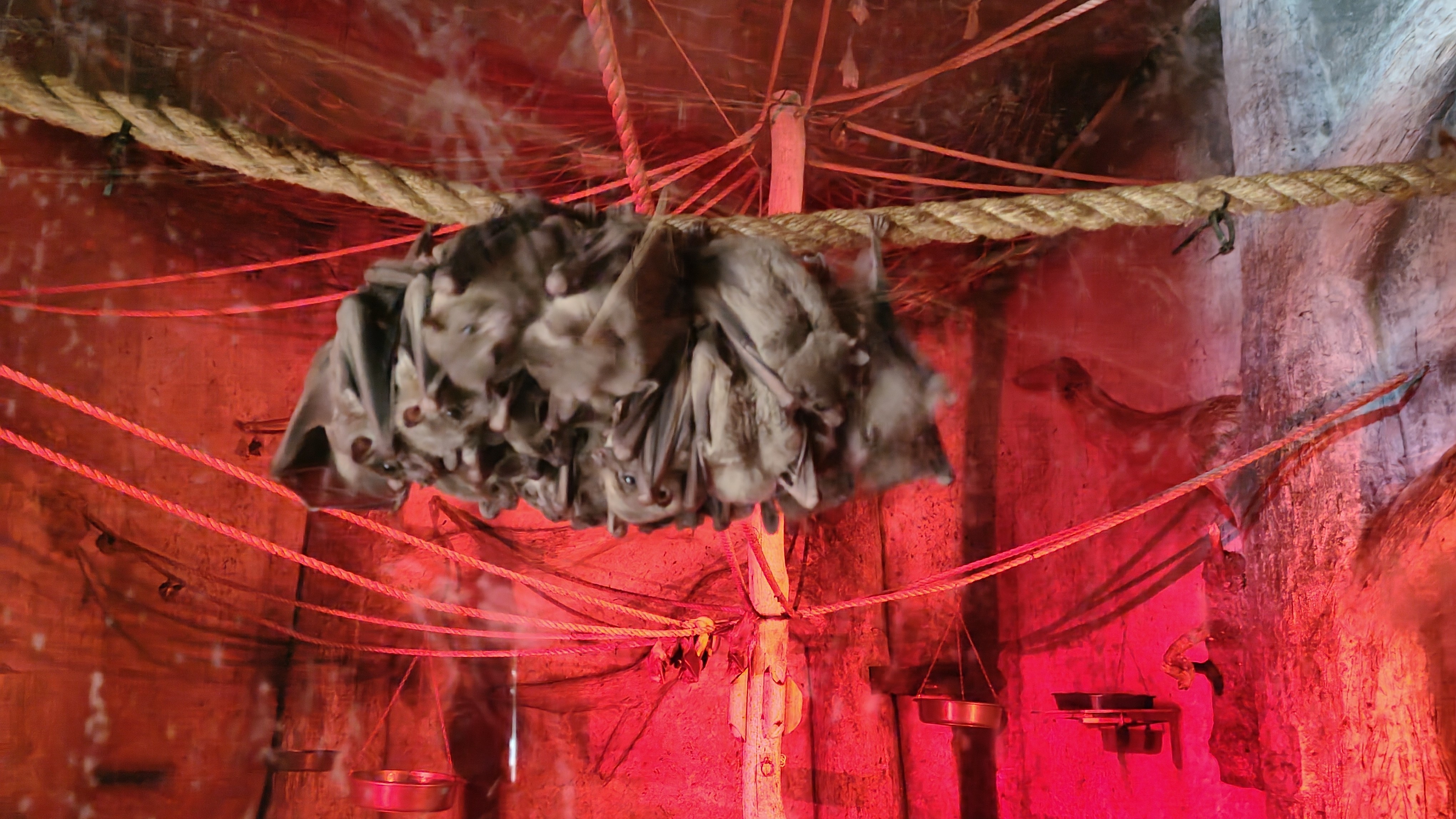
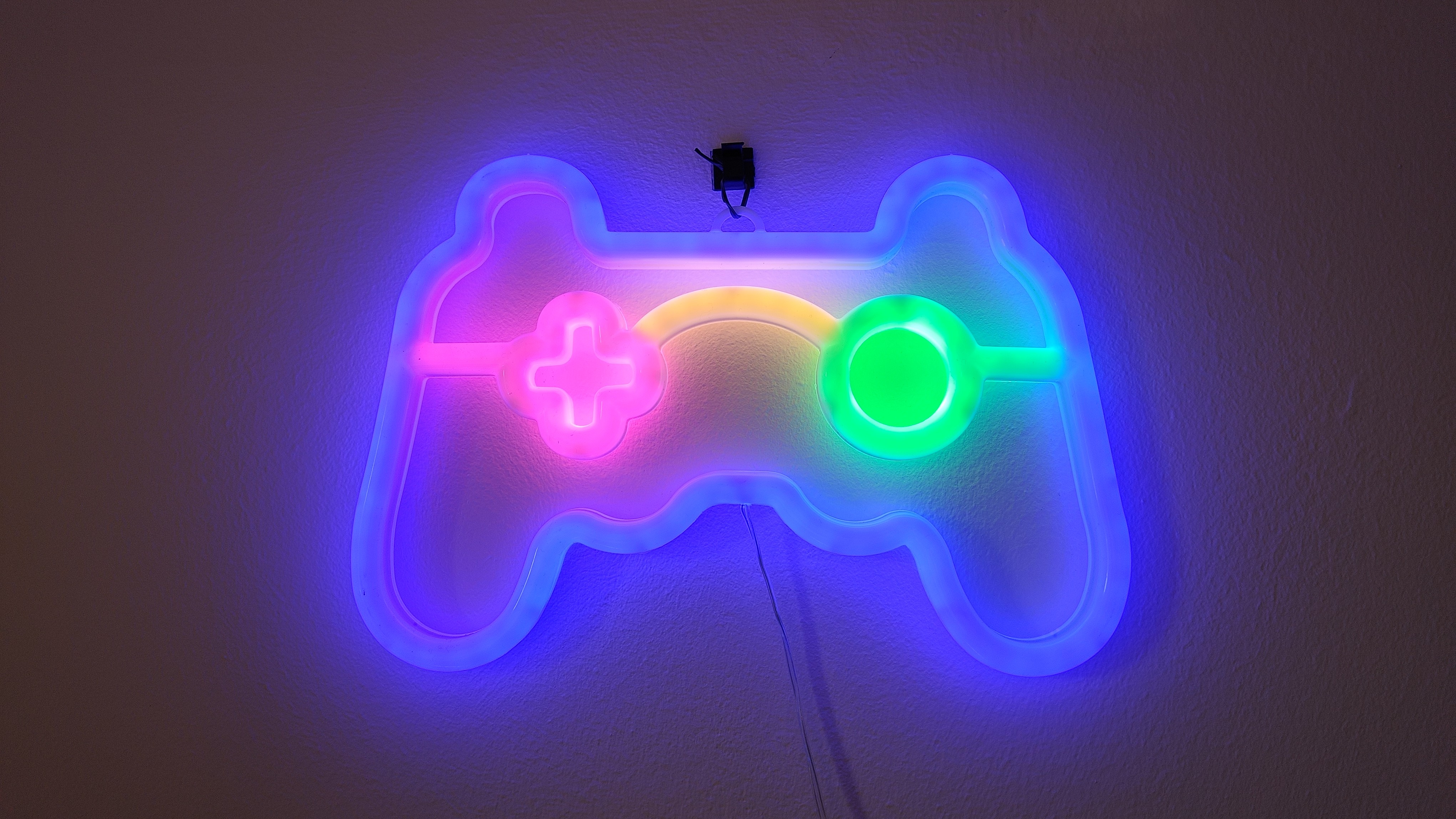
Gaming phones aren't exactly known for their dedication to photography. While there are some models out there that can compete with more traditional flagship releases (we'd recommend checking out Black Shark phones if you want an all-rounder), the RedMagic 8S Pro is less concerned with its camera quality. This is a more than usable set of lenses, with a 50MP main camera doing most of the heavy lifting in day to day usage.
Well lit scenarios are replicated with a nice amount of detail while colors are a little emphasized but generally offer plenty of depth and delineation between tones. Lower light situations do cause the system some hiccups, with more blurring of moving subjects and a more synthetic feel overall. It's not going to ruin your Instagram feed and the everyday user will get along just fine with these rear lenses, but camera enthusiasts need not apply.
Selfie lovers should really look for an alternative, though. The front camera on the RedMagic 8S Pro is by far its worst feature. Locked away behind the display, I went into testing sessions without high hopes - after all, this is a cheaper phone and even high-end iterations of this tech are still finding their feet. The resulting pictures could have been taken ten years ago, with a blurred overlay, very few details, and abysmal performance in low light settings.
Performance
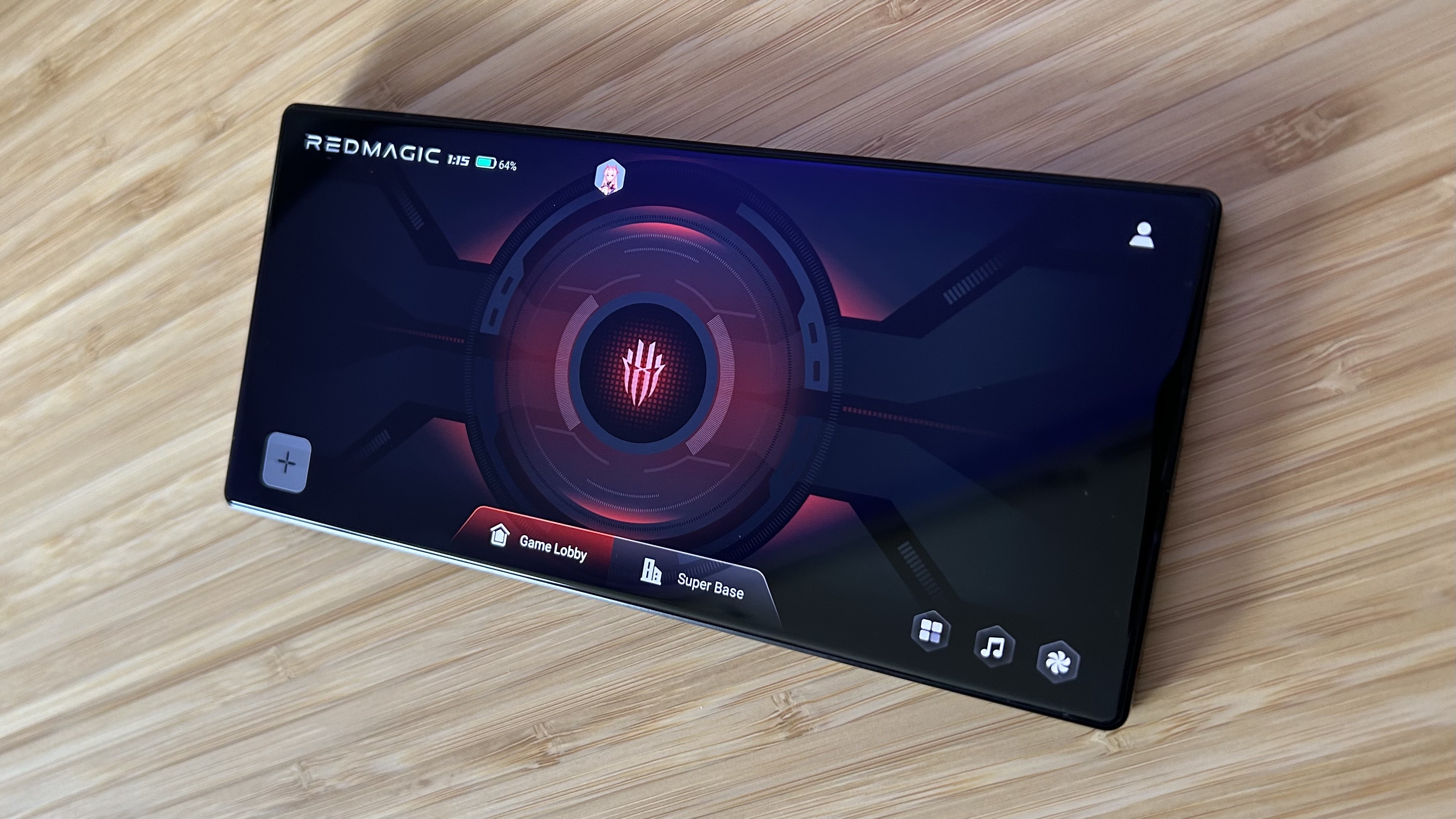
There's very little under the hood to separate the RedMagic 8S Pro from the 8 Pro before it. That slightly souped-up Snapdragon chip does bump performance compared to the previous iteration, though only by small amounts in certain circumstances. A 3,900 Wild Life Extreme benchmark score just edges past the 8 Pro, but still sits considerably behind that of Snapdragon Gen 3 options like the Asus ROG Phone 8 Pro at 5,164.
Day to day, though, you couldn't ask for much more than this. Everyday gameplay was smooth and responsive across Call of Duty Mobile and PUBG, with on-screen action remaining stable in heavy Magic: The Gathering Arena boards as well. Maxing out anything Google Play Store could throw at me, the RedMagic 8S Pro nails its core gaming functions and for far less cash than you'll find in other devices.
Should you buy the RedMagic 8S Pro?
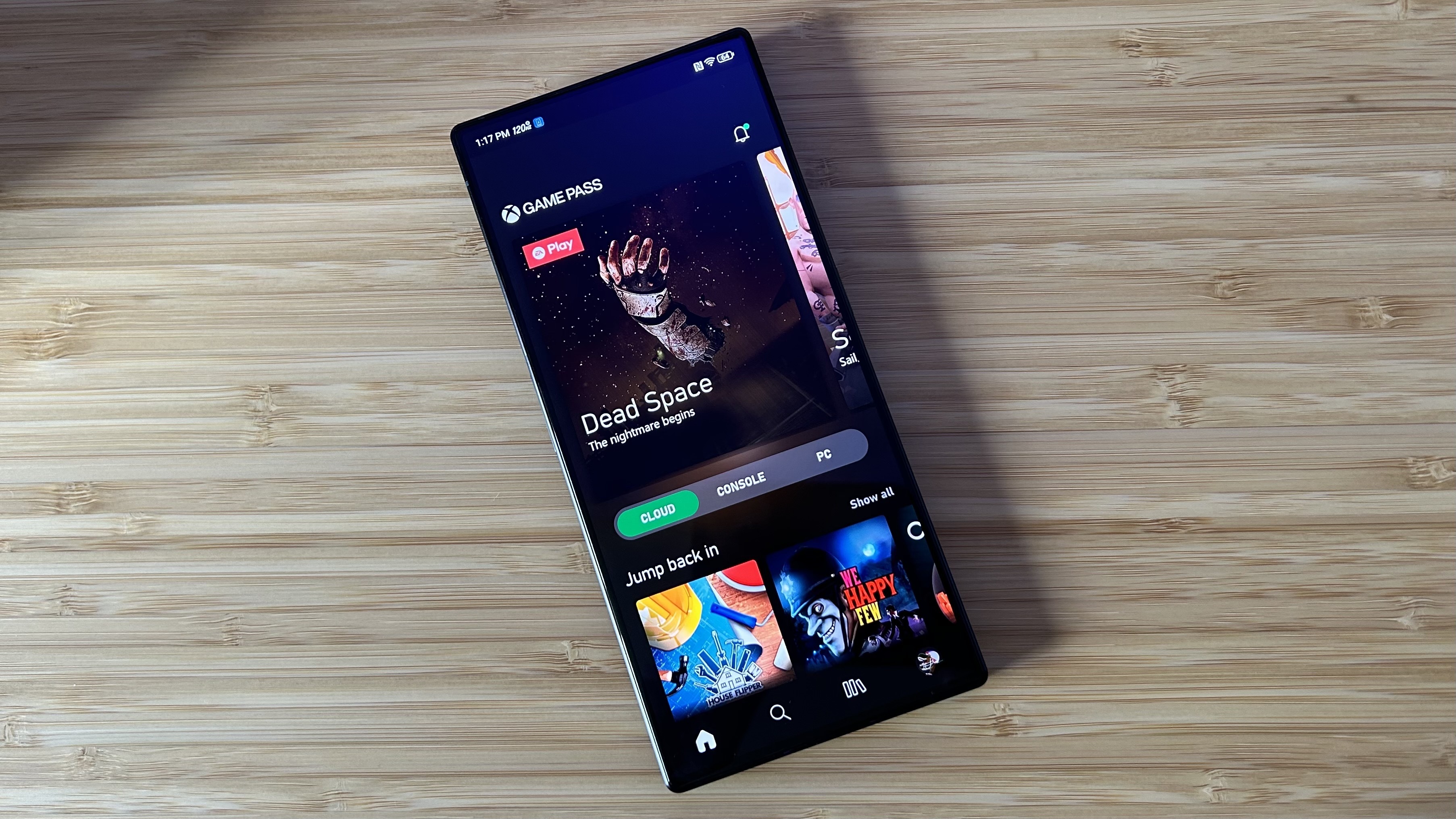
The RedMagic 8S Pro is a difficult phone to recommend in 2024. The older release has now been taken over by the RedMagic 9 Pro for an internal boost to the third generation of Snapdragon 8 at pretty much the same price. However, if you can find the 8S Pro for less due to its age it could well be a budget player's dream. You're getting excellent value for money overall, with all the RAM you'll need to launch demanding apps side by side without even breaking a sweat and the overall performance to handle anything the mobile market can throw at it. Photographers can get by with that main lens, though don't expect the additional clarity of high-end flagships.
| Specs | RedMagic 8S Pro | RedMagic 8 Pro | Asus ROG Phone 8 Pro |
|---|---|---|---|
| Display | 6.8-inch AMOLED, 1116 x 2480 at 120Hz | 6.8-inch AMOLED, | 6.78-inch AMOLED, 2448 x 1080 at 165Hz |
| Processor | Snapdragon 8 Gen 2 | Snapdragon 8 Gen 2 | Snapdragon 8 Gen 3 |
| RAM | 8GB | 12GB | 16GB | 12GB | 16GB | 16GB | 24GB |
| Storage | 128GB | 256GB | 512GB | 256GB | 512GB | 512GB | 1TB |
| OS | Android 13 | Android 13 | Android 14 |
| Cameras | 50MP wide, 8MP ultrawide, 2MP macro, 16MP front | 50MP wide, 8MP ultrawide, 16MP front | 50MP wide, 13MP ultrawide, 32MP front |
| Battery | 6,000 mAh | 6,000 mAh | 5500mAh |
| Water resistance | NA | NA | IP54 |
| Dimensions | 16.4 x 7.6 x 0.9cm | 16.4 x 7.6 x 0.8cm | 16.3 x 7.6 x 0.8cm |
| Weight | 228g | 228g | 225g |
How we tested the RedMagic 8S Pro
I used the RedMagic 8S Pro as my main smartphone for two weeks, playing a range of games including Marvel Snap, Magic The Gathering: Arena, PUBG, and Call of Duty Mobile. I also stress tested across 3D Mark's mobile benchmark suite. For more information on how we make our recommendations, check out the full GamesRadar+ Hardware Policy.
You can also take your gaming phone further with the best mobile controllers on the market or, for more portable play, check out the best gaming tablets and the best gaming handhelds.

Managing Editor of Hardware at GamesRadar+, I originally landed in hardware at our sister site TechRadar before moving over to GamesRadar. In between, I've written for Tom’s Guide, Wireframe, The Indie Game Website and That Video Game Blog, covering everything from the PS5 launch to the Apple Pencil. Now, i'm focused on Nintendo Switch, gaming laptops (and the keyboards, headsets and mice that come with them), PS5, and trying to find the perfect projector.
